Geshe Yeshe Thabkhe
Geshe Yeshe Thabkhe was born in 1930 in Lhokha, Central Tibet and became a monk at the age of 13. After completing his studies at Drepung Loseling Monastery in 1969, he was awarded Geshe Lharampa, the highest degree in the Geluk School of Tibetan Buddhism. He is an emeritus professor at the Central Institute of Higher Tibetan Studies and an eminent scholar of both Madhyamaka and Indian Buddhist studies. His works include Hindi translations of The Essence of Good Explanation of Definitive and Interpretable Meanings by Lama Tsongkhapa and Kamalasila's commentary on the Rice Seedling Sutra. His own commentary, The Rice Seedling Sutra: Buddha’s Teachings on Dependent Arising, was translated into English by Joshua and Diana Cutler and published by Wisdom Publications. Geshela has facilitated many research works, such as a complete translation of Tsongkhapa’s The Great Treatise on the Stages of the Path to Enlightenment, a major project undertaken by the Tibetan Buddhist Learning Center in New Jersey where he teaches regularly.
Featured Series
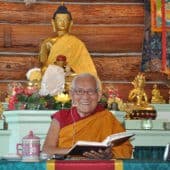
Aryadeva’s 400 Stanzas with Geshe Yeshe Thabkhe (2013-17)
Teachings by Geshe Yeshe Thabkhe on Aryadeva’s Four Hundred Stanzas on the Middle Way given at Sravasti Abbey and Tibetan Buddhist Learning Center, New Jersey. With interpretation into English by Joshua Cutler.
View Series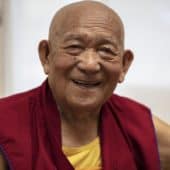
Pramanavarttika with Geshe Yeshe Thabkhe (2018–21)
Geshe Yeshe Thabkhe teaches Dharmakirti's commentary on Dignaga's Compendium on Valid Cognition. With interpretation into English by Joshua Cutler and Katrina Brooks.
View SeriesFeatured Posts
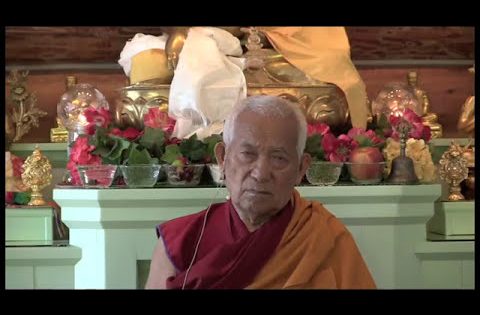
Chapter 4: Verses 90–100
What does it take to be an ethical leader? Is it appropriate f...
View Post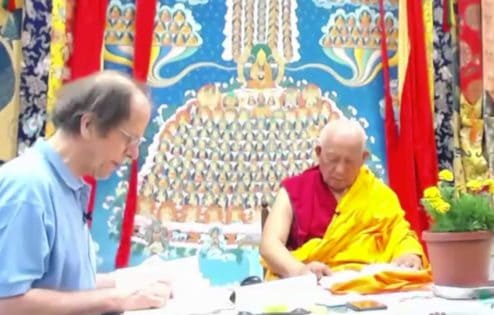
Proving past and future lives
Verses proving the existence of past and future lives over whi...
View Post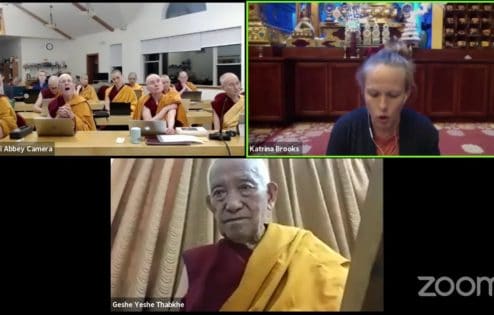
The sixteen aspects of the four truths
How the sixteen aspects of the four truths contradict the sixt...
View PostView Posts
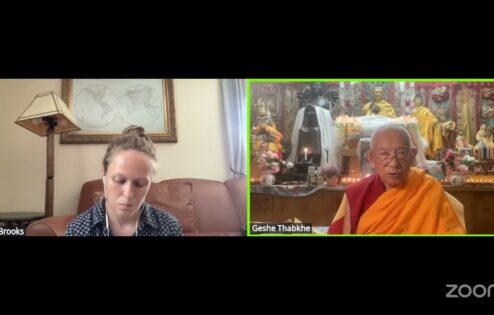
Emptiness and partless particles
Geshe Yeshe Thabkhe explains how realizing emptiness clears away fear and other distressing states.
View Post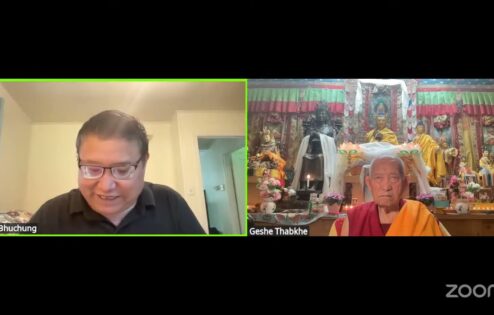
Refuting modes of existence
Geshe Yeshe Thabkhe continues through verses 57-69 which refute certain false modes of existence.
View Post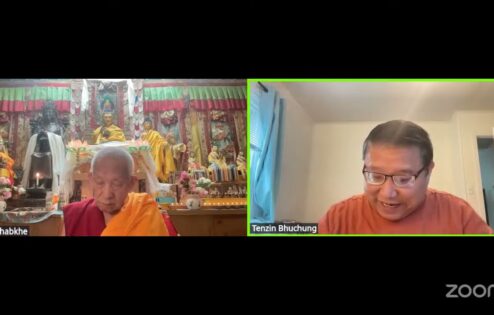
Examining cause and effect
Geshe Yeshe Thabkhe teaches on the lack of inherent existence of cause and effect.
View Post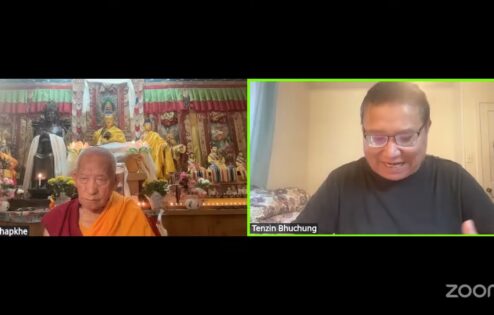
Avoiding the two extremes
A teaching on how the Middle Way avoids the two extremes of nihilism and eternalism.
View Post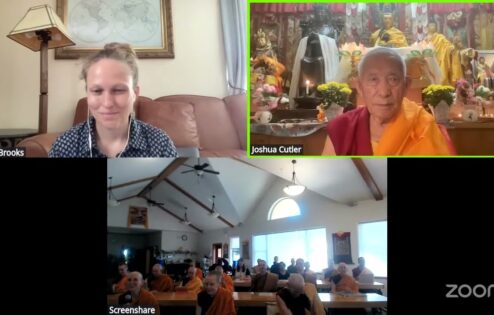
The emptiness of an inherent self
A teaching on the emptiness of inherent existence covering verses 28-36 of the text.
View Post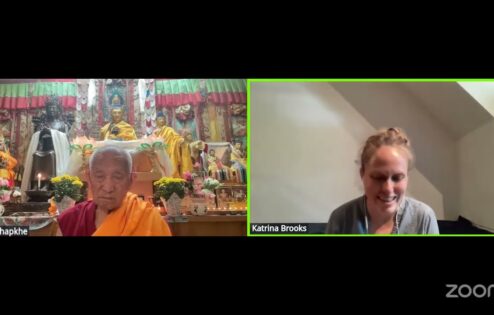
Realms of upper rebirth
Geshe Yeshe Thabkhe teaches on the various upper rebirths and accompanying experiences.
View Post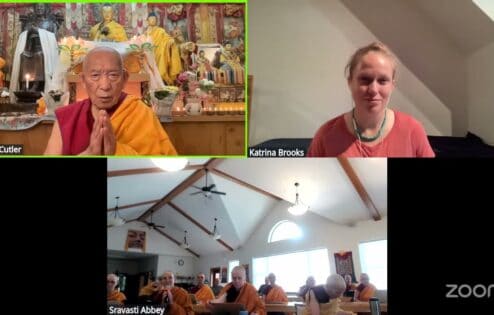
The results of non-virtue
Geshe Yeshe Thabkhe teaches what it means to practice the Dharma, the ten non-virtues.
View Post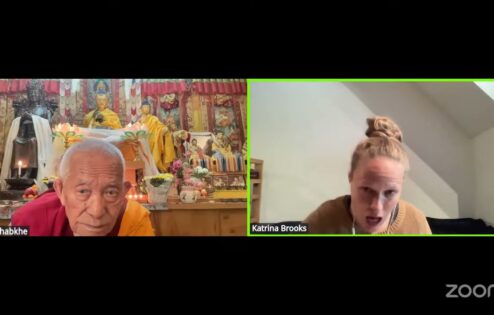
What to practice and abandon
Geshe Yeshe Thabkhe covers verse 10 of the text, in great detail.
View Post
Faith and wisdom
Explanation of the causes and effects of higher rebirth and the highest good.
View Post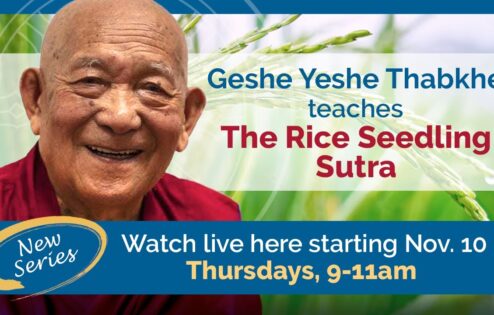
Analysis of the nature of a divine creator
Geshe Yeshe Thabkhe explains how to analyze the nature of a divine creator.
View Post
Analyzing reasons for a divine creator
Geshe Yeshe Thabkhe explains how to analyze reasons for the existence of a divine creator.
View Post
Practicing causes for happiness
Geshe Yeshe Thabkhe explains why the Buddha taught dependent arising.
View Post